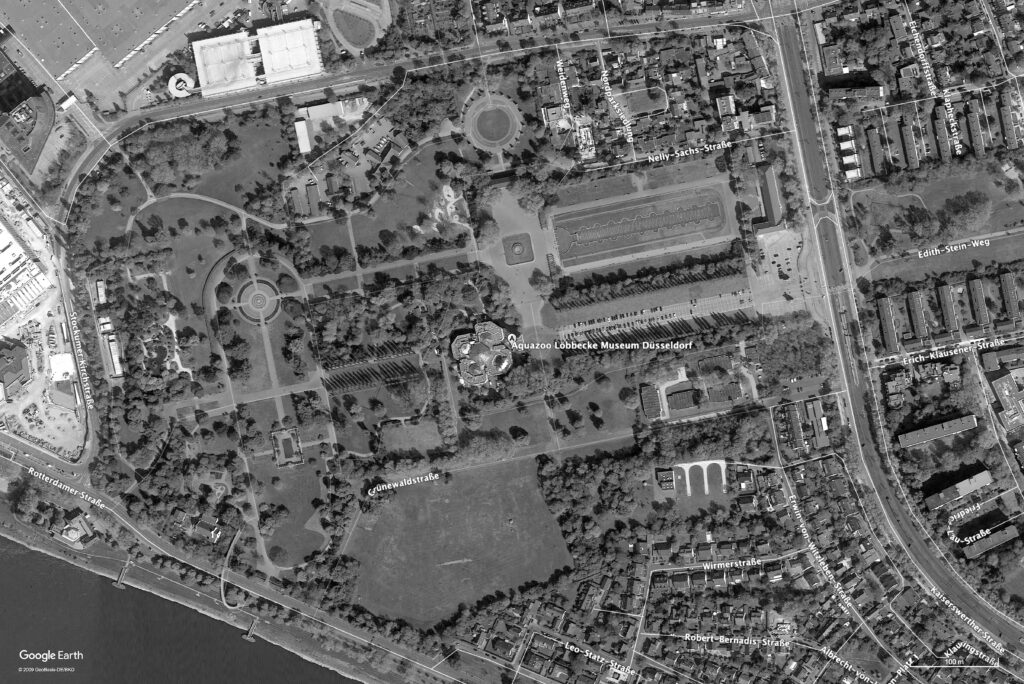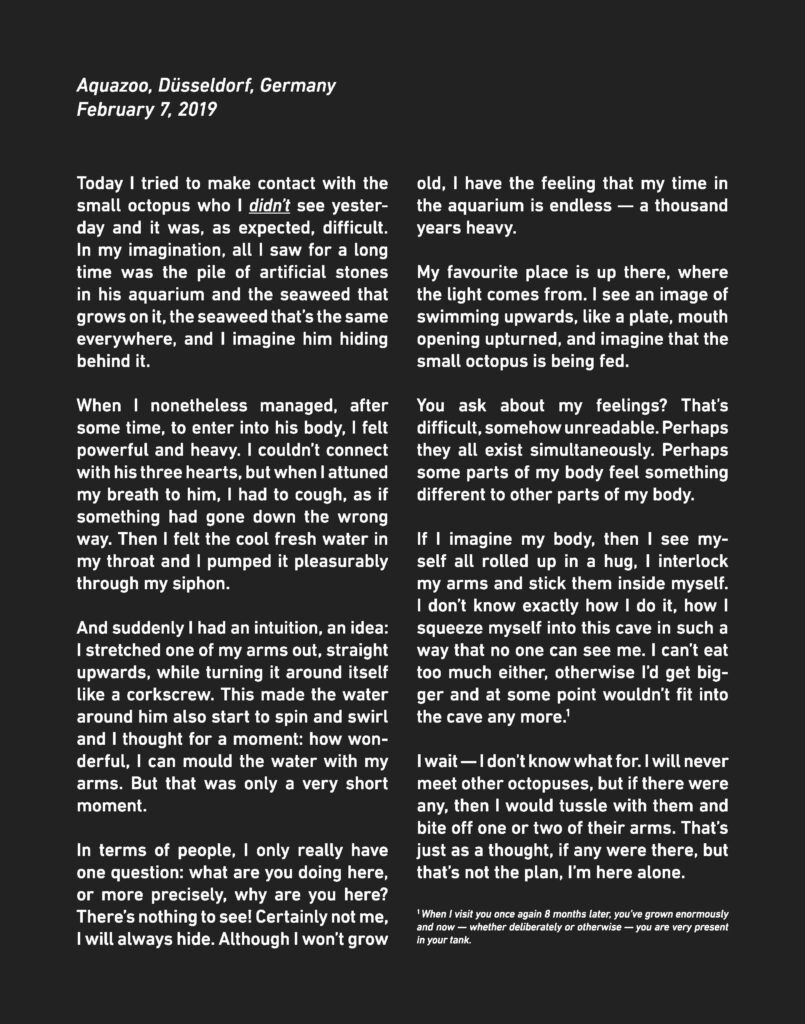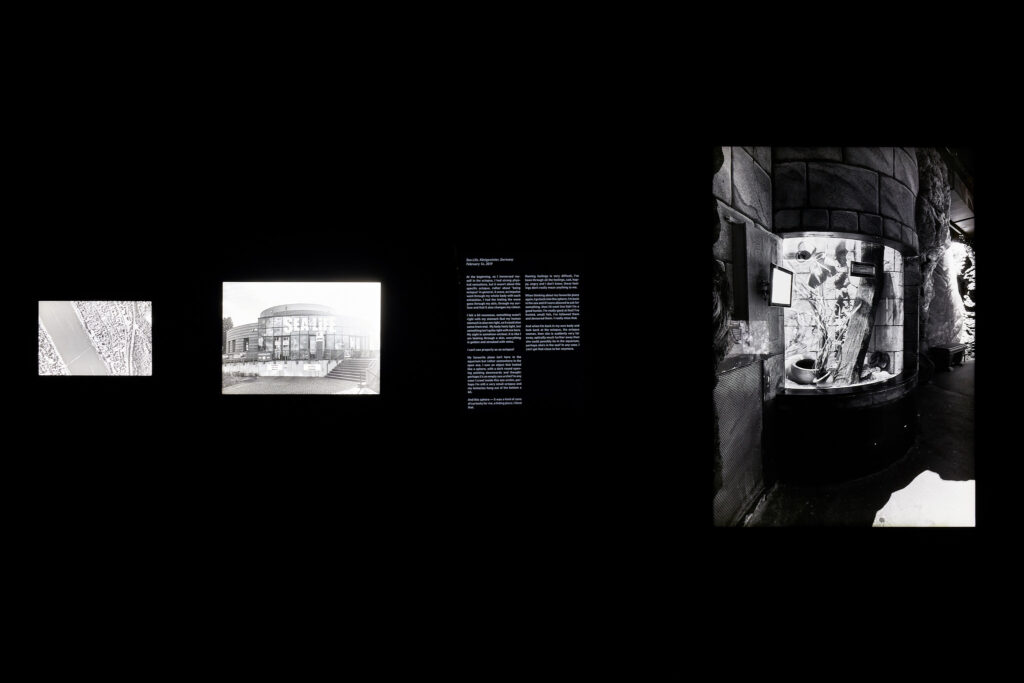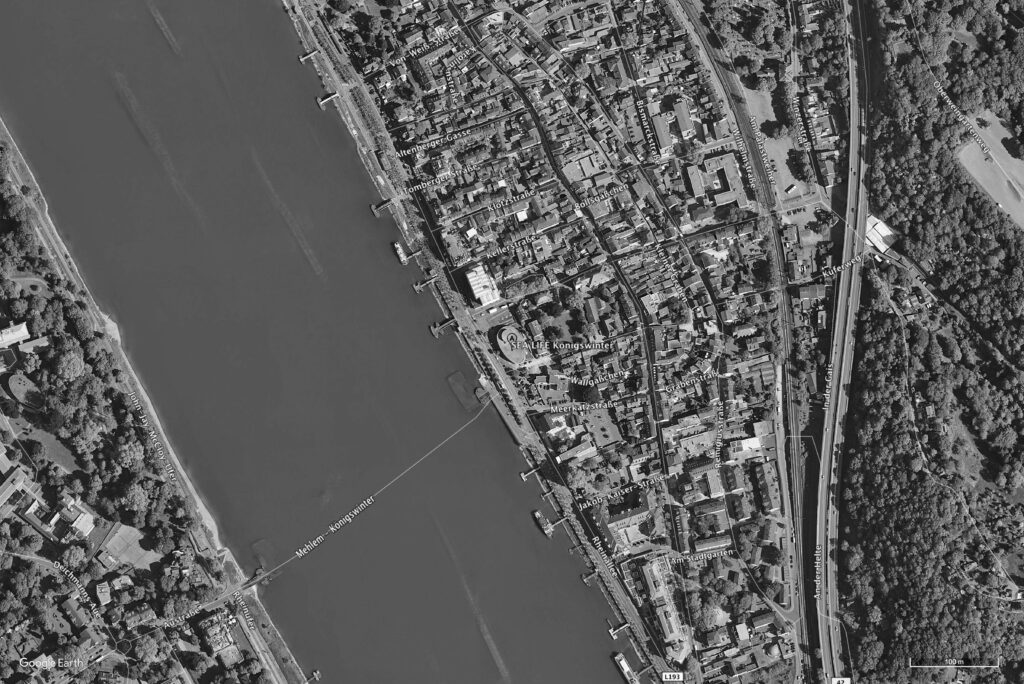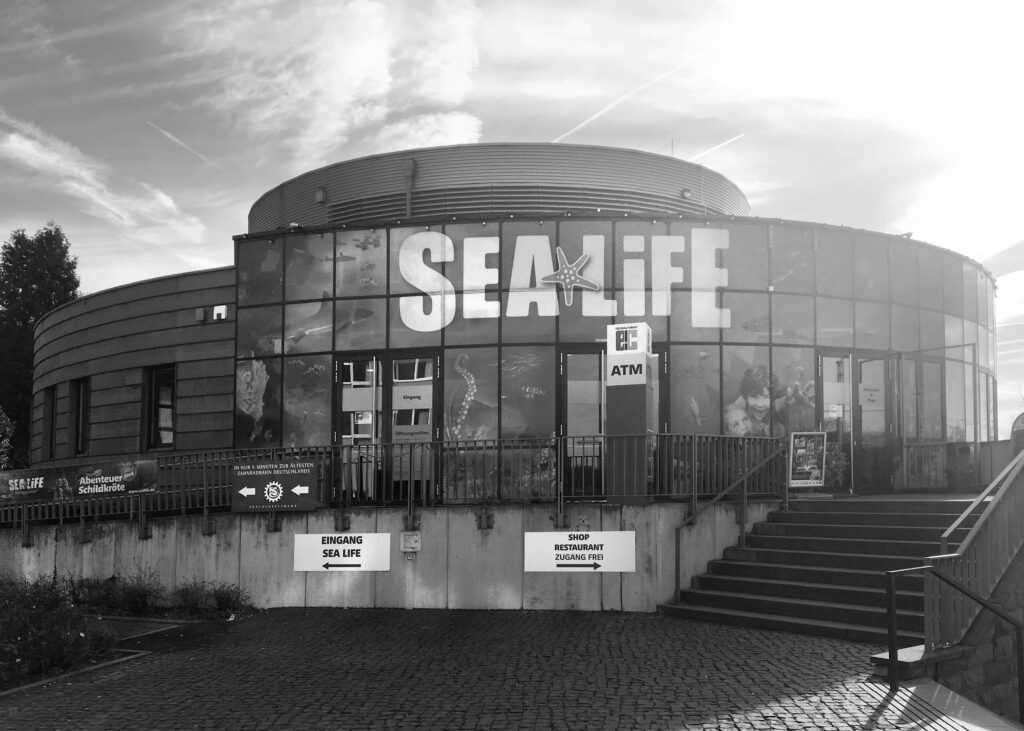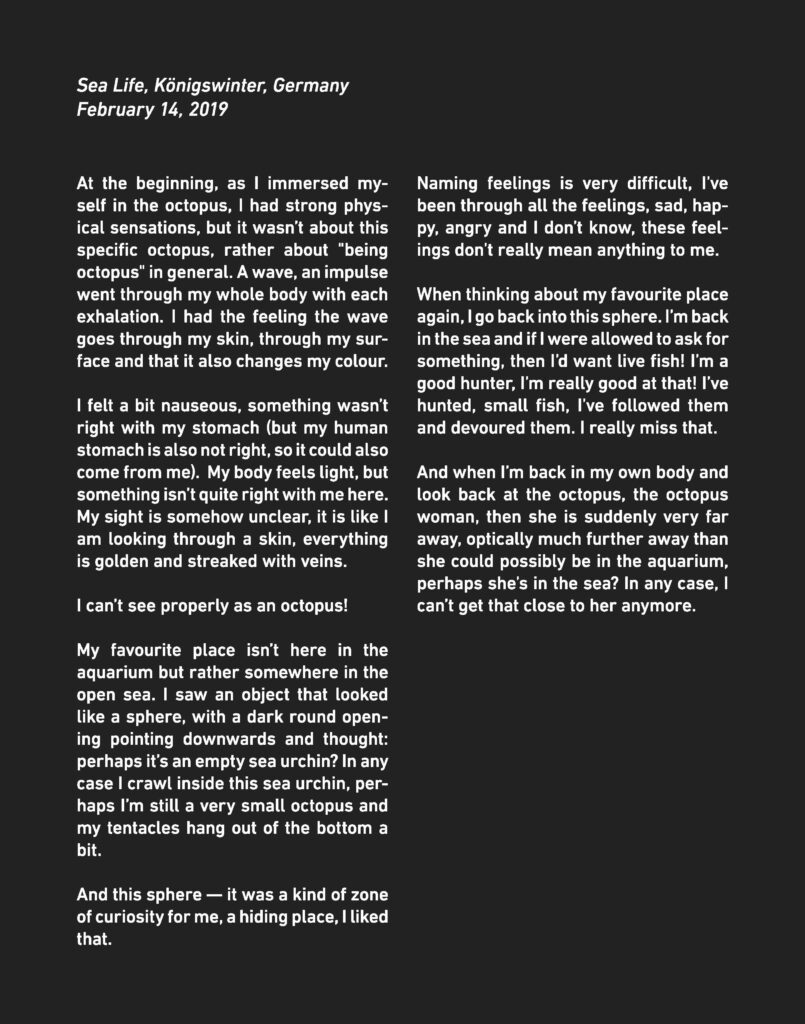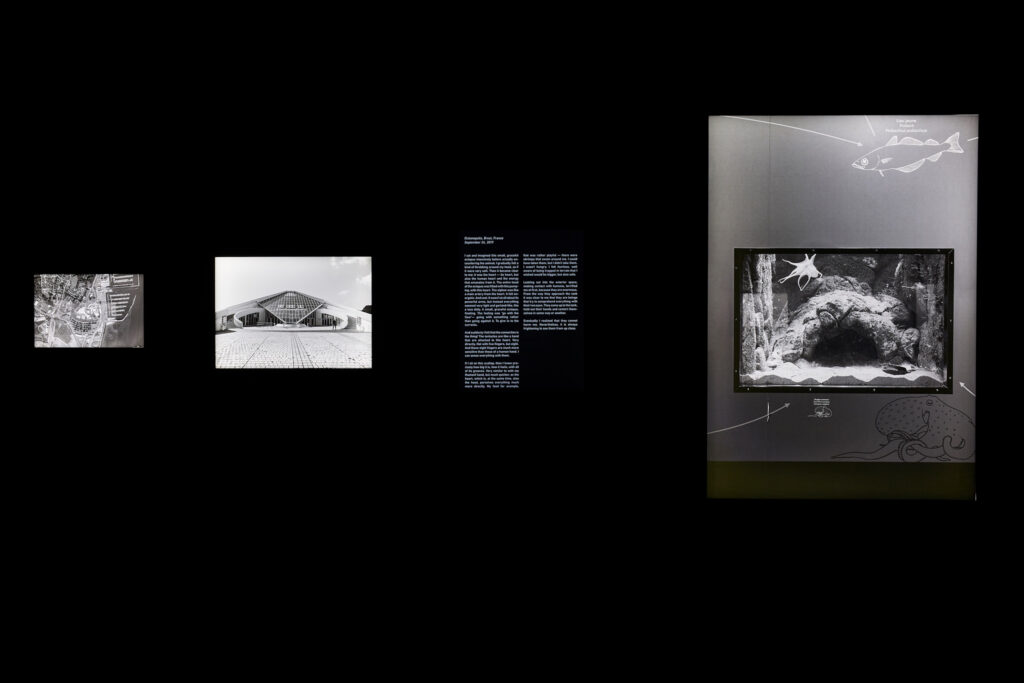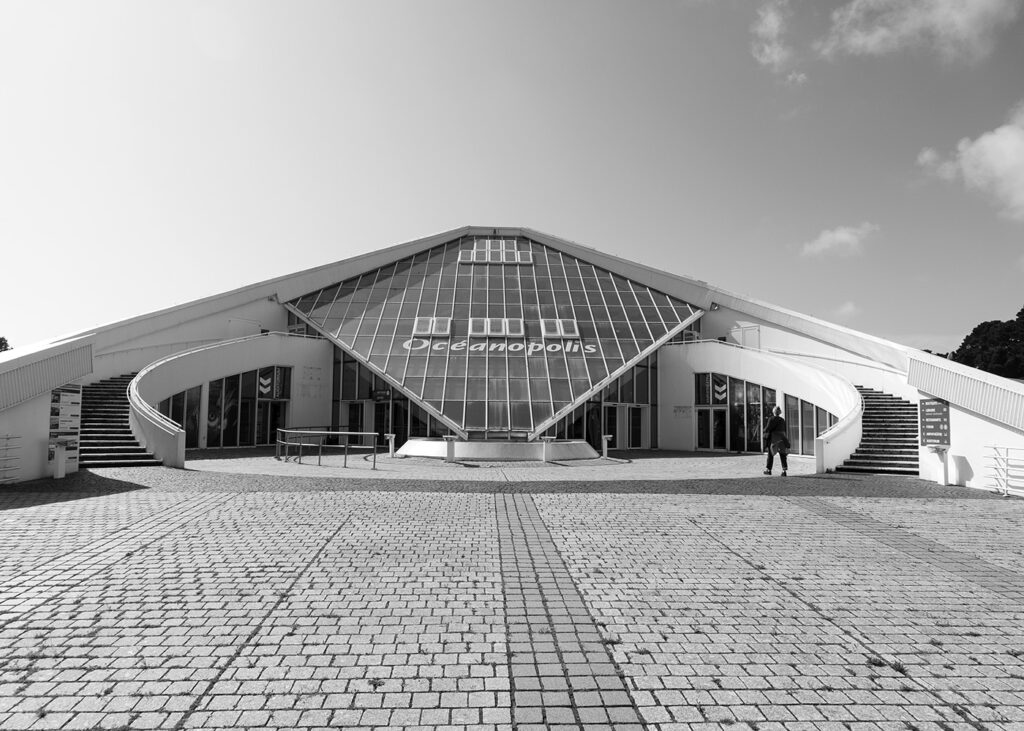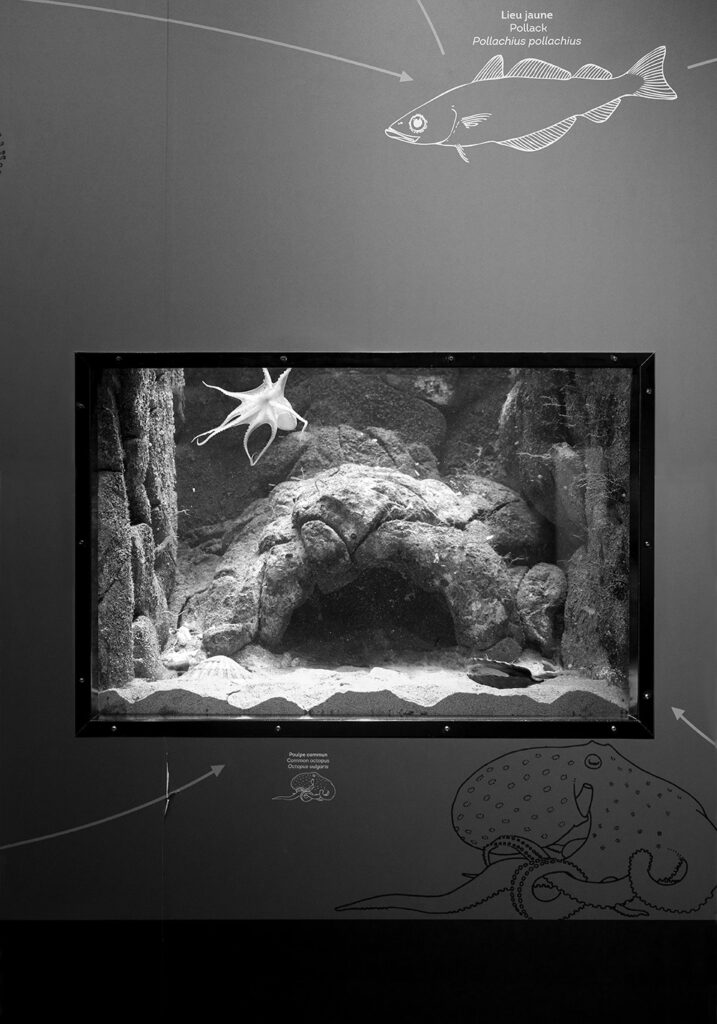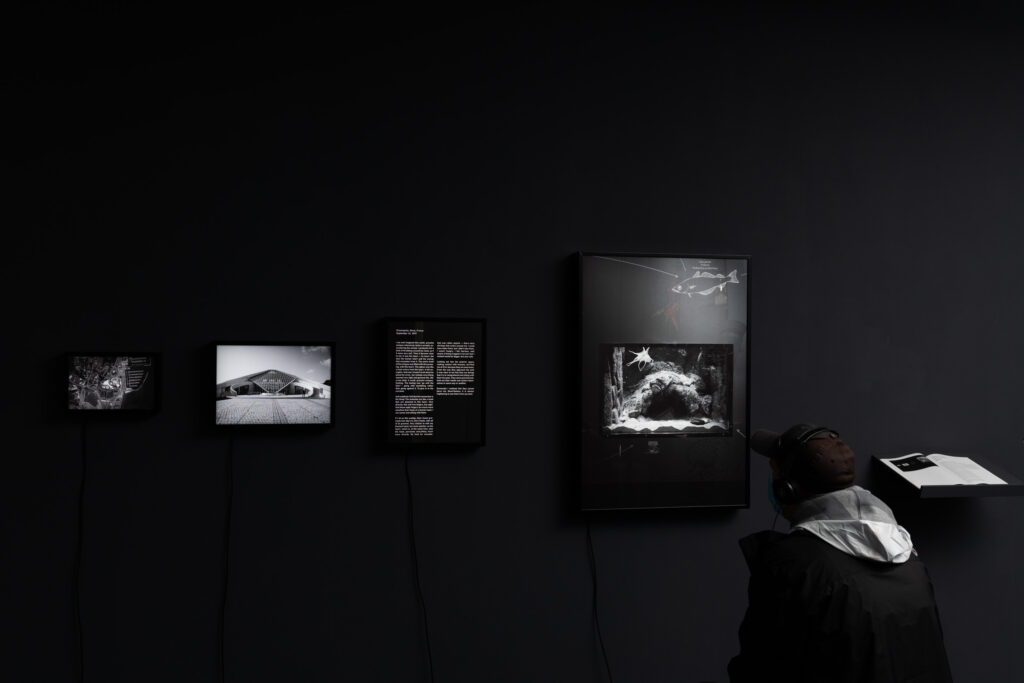
“The question “What is it like to be another animal?” has often been rhetorically leveled against insinuations that we could know what the world might feel like for an other animal. One cannot help but get the impression that it circumvents the more uncomfortable question what it is like to be another animal in captivity?
Our visit begins from above. The view reveals a fragile borderland. For octopuses the map seems inverted. Where there should be water there is land, the aquarium as the ocean’s messenger. A reference, maybe, to the octopuses’s occupation of a transit zone between ocean and land, but also to the intimacy between alienness and familiarity, as the bird’s eye view and the familiar topography of roads and places accustoms us with the unknown location through we will never really command, and the fragility and bitterness of their captivity. So close remains their home behind that harbor wall.
Hörner/Antlfinger peel away the distance that appears to separate us from the octopus. They narrow in on him by palpating the environment. “Wildness” has become the shorthand for authenticity. Who, then, is that octopus in this artificial environment? Through careful observation and externalizations of their own experience, we are led in ever closer spirals to the octopus’s perspective. By following the trail from the familiarity of intersubjective recognition to the assumingly impenetrable, all the sudden, to know what it is like to be that octopus actually appears quite imaginable. As the transition proves smooth, effortless, unnoticeable, what if our perspectives seamlessly connect?

